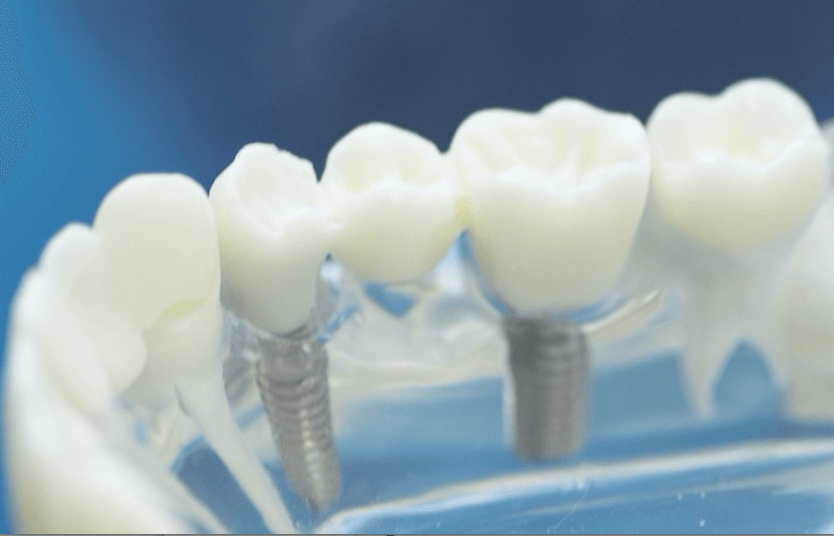MISSING TEETH CAN AFFECT MORE THAN JUST YOUR APPEARANCE
If you’ve lost one or more teeth, plugging the gap can lower your risk of oral health problems and support the healthy teeth on either side so they don’t shift and become crooked.
Your dentist will discuss all the different options for replacing your missing teeth, so you can choose the treatment that’s right for you. Two of the most popular options are dentures and dental implants, which each have their advantages and disadvantages for different people.
PROS
- Dentures cost less than the alternatives, especially if you need to replace many teeth.
- They can be fitted sooner after an extraction than implants.
- No surgery is required for removable dentures.
- Patients can choose between removable or fixed (implant-retained) dentures.
CONS
- Although denture technology has improved, some say that they still don’t look or feel as natural as implants.
- Dentures don’t last as long as implants and can be damaged more easily.
- You may need to adjust your diet as certain foods and drinks are unsuitable for dentures.
- Removable dentures don’t support your jaw like implants do. They also won’t support your mouth
Who is suitable for dentures?
Dentures can be worn at all ages, not just seniors. Dentures may be suitable for people who may not be candidates for implants for medical reasons.
If you need to replace an entire arch of teeth, your dentist may recommend full dentures as the most affordable treatment. If you only need to replace one or several teeth, they may suggest partial dentures or recommend an implant or dental bridge to offer more support, but the choice is always down to the individual patient in consultation with their dentist. Find out more about dentures
Dental Implants
Dental implants are a long-term replacement for missing teeth. The implant itself is a titanium post that’s surgically placed in your jaw, where it acts like a tooth root to support a prosthetic tooth as well as supporting your jaw.
PROS
- Implants look, feel and function more like natural teeth.
- They stimulate new bone growth in your jaw to prevent it from shrinking.
- You don’t have to give up your favourite food and drink.
- When you take good care of your implants, they can last for much longer than dentures, sometimes for decades.
PROS
- Implants cost more than dentures (although they usually last longer).
- Placing an implant involves oral surgery*.
- Bone grafting may be needed if your jaw is too small to support an implant*, which could affect your eligibility.
- Implants can involve more appointments and waiting time, especially if bone grafting is needed.

Who is suitable for dental implants?
Your dentist is more likely to recommend implants if you only need to replace one or a few teeth, as they offer more support than dentures and are easier to maintain. If you need to replace a whole arch of teeth, they may recommend full arch restoration using just four implants – such as All-on-4® implants.
Your mouth needs to be healthy before implants can be fitted. If you have a problem such as tooth decay or gum disease, this needs to be treated first. If you smoke, giving up will increase the chance of your implants being successful.
If your jaw is inadequate to support a standard implant and you need a bone graft, you won’t be suitable for this procedure if you have a medical condition such as a blood clotting disorder, bone diseases or immune system deficiency. Book a consultation with your dentist to talk through the treatment options available to you. Find out more about dental implants
Make An Appointment with our Wagga Dentists
If you’re thinking about dentures, dental implants or other treatments to restore your smile and your oral health, talk to our dentists in Wagga Wagga.
Call Morgan Street Dental Centre on (02) 6921 9500 or contact us online.
*Any surgical or invasive procedure carries risks. Before proceeding, you should seek a second opinion from an appropriately qualified health practitioner
